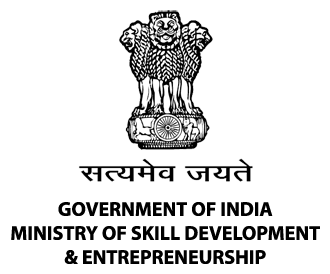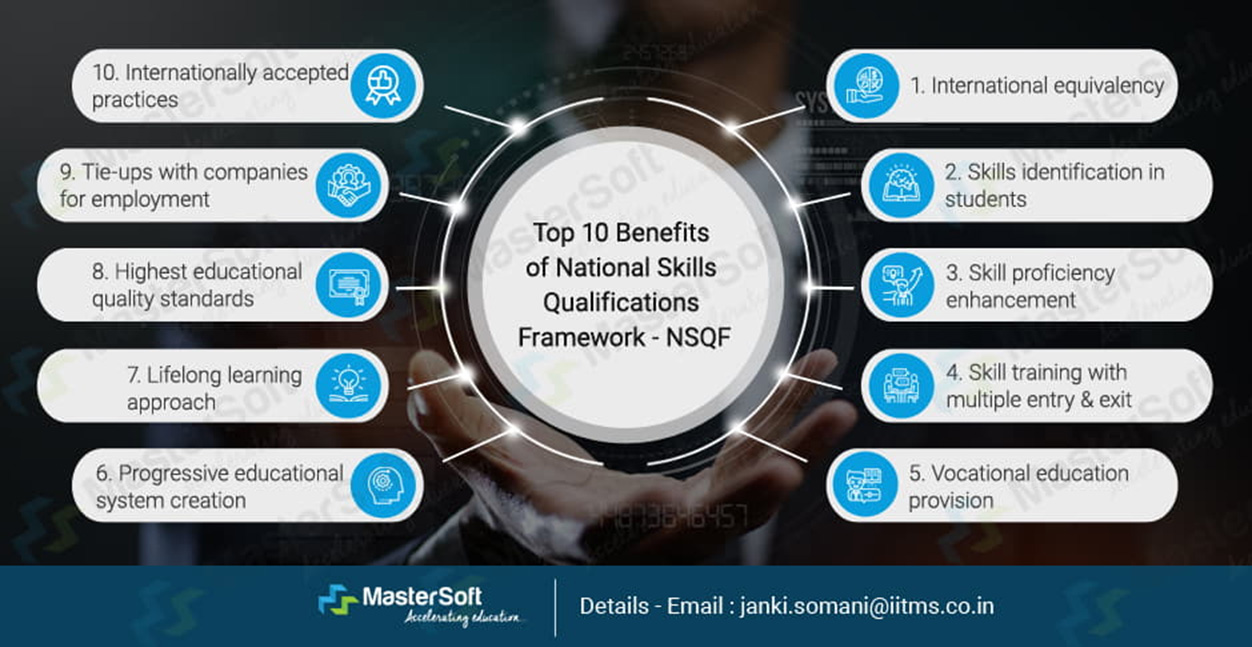

SPEFL-SC is a Not-for-Profit organisation formed by Ministry of Skill Development & Entrepreneurship (MSDE). The council has been promoted by National Skill Development Corporation & Federation of Indian Chambers of Commerce & Industry (FICCI).
Mission : To train and certify 2.1 million people/trainee under Skill India Mission.
Vision :

There are thousands & lakhs of students that graduate every year in India. But have you wondered why most youngsters are unemployed?
Is it due tolack of opportunity?
No, the biggest reason is – Lack of “skilled” professionals!
To address the serious issue, the Government of India took initiative in the year 2013 and introduced National Vocational Education Qualification Framework (NVEQF) which was renamed afterward as – “National Skills Qualifications Framework (NSQF)”.
All three schemes by GOI are included in the National Skills Qualification Framework with an aim to provide skills to learners and become a “superpower” in the upcoming years.
NSQF or National Skills Qualifications Framework is a nationally integrated and competency-based education framework that allows individuals to achieve their desired competence level. In NSQF, qualifications are organized according to the levels based on skills, knowledge, and aptitude.
There are a total of 10 levels of NSQF that define the purpose of the NSQF more accurately. Before I explain to you the levels, let us first understand the key elements of the National Skills Qualification Framework.
The vocational & technical skill promotion concept & multi-disciplinary education approach in studies, as described in the NEP Policy 2020 are an extension of the idea of NSQF.
The major objectives of the NSQF include offering the given provisions to create & ensure a quality assurance framework –
The NSQF wants to ensure that the diversity of the present Indian education system is accommodated within the skill-based framework. It pays attention to developing a unique qualification for various levels and defining the expected student learning outcomes.
NSQF aims to provide an organized structure for the development & maintenance of a roadmap that would help learners. Primarily, it takes care of offering academic knowledge along with the industrial–practical knowledge that would develop & polish students’ skills. For various job roles & levels, NSQF has formulated the following parameters for industry-specific skill development.
Any learner can’t understand the core of industrial practices without actual training in the different industries. Therefore, NSQF includes industrial training in education itself to simplify the doubts of students. They get hands-on industry experience prior to their course completion and gain real-time knowledge.
The NSQF supports high-quality learning and enables the students to get exposure to national & international opportunities. Thus, it amplifies the significance of education, and geographical boundaries no longer remain a barrier.
NSQF believes in inculcating skills not just for professional benefits but for a lifetime! Thus, they focus on delivering the highest form of skill-based education for enabling students to develop a sharp mindset that would help them survive in any critical situation throughout their life.
The NSQF levels range from one to ten are categorized by learning outcomes that learners must acquire through their formal, informal, or non-formal acquisition.
The first level of NSQF aims to prepare learners to automatically sink in the repetitive tasks and save their precious time every single time they need to perform them. They need not require any prior practice.
Level 2 National Skill Qualification Framework aims to prepare learners to carry out repetitive tasks with the application of understanding. It would help them understand & perform the task, thus promoting logical thinking.
Level 3 National Skill Qualification Framework aims to prepare learners to carry out a specific job role or task that doesn’t require much effort and is predictable in nature.
Level 4 National Skill Qualification Framework aims to prepare learners to work in a familiar environment where the nature of the job is not new, quite familiar, and can be performed on a routine basis.
Level 5 National Skill Qualification Framework aims to prepare learners to become skilful and take a job of their choice and work in a familiar environment.
Level 6 National Skill Qualification Framework demands a variety of skillset especially technical skills, the learner must be well-equipped with knowledge & carry out standard & non-standard practices as per the requirement of the job.
Level 7 National Skill Qualification Framework requires a skilled person that has a theoretical as well as practical skill-set and is efficient enough to do routine & well as any non-routine job. One needs to have multi-tasking skills!
Level 8 National Skill Qualification Framework needs an individual that has got comprehensive, theoretical, practical, as well as cognitive skills. One must be good at communication and needs to conduct tasks independently.
Level 9 National Skill Qualification Framework is quite advanced in terms of knowledge & skills expectations. It prepares a learner to have a critical understanding of any subject and develop innovative thinking.
Level 10 National Skill Qualification Framework requires specialization in everything in terms of –knowledge, problem-solving, and ability to offer an original contribution.
The various levels of the NSQF allow the development of a wide range of skills that can help the students as well as institutions in the long run. The following list depicts the top benefits of implementing NSQF.

It's a well-known fact that educational institutions charge a large amount of money from students for educational facilities. However, the students are not able to meet the professional requirements and don’t get placed even after studying hard for so many years. The NSQF framework can help students get placed in good companies and get paid well.
NSQF can simplify the tasks of faculty by incorporating industrial training in the syllabus. Institutions can expect the following outcomes with the implementation of NSQF.
Educational institutions seeking NSQF implementation must meet the eligibility criteria-
For detailed information on Master Soft’s offering, connect with our team today! We will guide you about everything & anything related to your educational work processes.
This certificate enables the trainers to register on the NSDC portal and Sportz Grid which will help them get employment in the industry both in India and abroad.
This certificate also qualifies the professional for Govt. Schemes to help them in securing easy loans so that they can start their own venture and become self-reliant
This is an NSQF level- 4 certification which is compulsory for applying in ICREPS & EREPS worldwide. This is an important assurance for the public and employers that their instructors or employees hold the appropriate qualification to perform their role safely and effectively.
Down load UGCguidline for providing skill based education
Down load Ministry of finance (Department of economic affairs Notification for NSQF